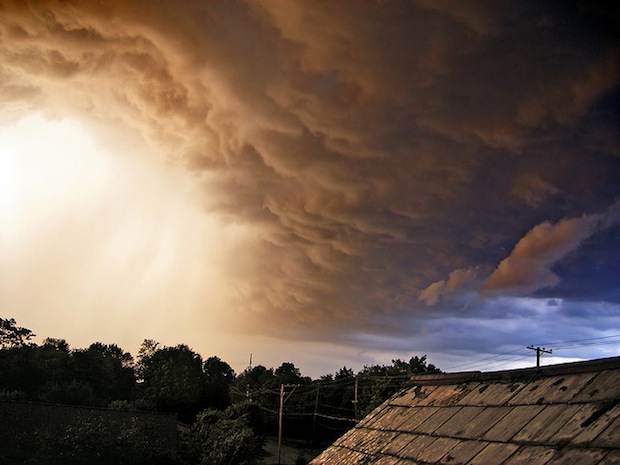You have no items in your cart. Want to get some nice things?
Go shopping
Her arms are in the hot dishwater and she is rubbing a sponge over a dirty plate when a car pulls up. Peering through the curtain, the plate still in her hand, she hears the engine being switched off, then watches the driver’s door open and a man get out. He taps the top of the door so it swings shut, and turns to look at the house.
She steps back so he can’t see her, puts her hand to her mouth and jumps at the splash of water as the plate falls into the full sink.
She shakes her head. Her face and front are wet from the suds; sweat has broken out on her forehead and upper lip.
The heavy steps on the pebble front tell her he’s coming towards the front door. It will take him about ten strides to walk over to the gate and another ten to go up the path, maybe less if his stride is bigger than Sean’s; he is taller.
With a comb from her apron pocket she wipes the sides of her hair and the top, and smoothes her clothes. She still has her apron on but there is no time. She dries her hands on the tea-towel and goes to the front door that is already open, and watches him come up the path.
He stops when he sees her.
The noise of the wind carries with it the gasp that escapes her lips. The sky behind him is thick and grey; thunder is coming.
“I –” She goes to speak but her throat has closed. She brings her hand to her mouth as she watches him, standing still halfway up the path, telling herself that her eyes are tricking her. That it’s not him at all. Sure, how could it be him? She blinks, squinting against the darkening sky. His face has changed, it has lines in it and his hair has gone grey. But it is him, all right.
“Hello, Nell.”
She goes to him on shaking legs and he puts his arms around her and she leans her face against his chest.
When she feels the warmth from him she steps back. He looks well, and she would tell him so, but if she spoke now the words would turn into a loud, horrible wail, and she doesn’t know when it would end. She smiles.
“Nell. Time has been on your side.”
“Will you come in for tea?” She takes note of the light of day. Mid-afternoon. No-one will be home for a couple of hours.
He nods.
She leads him inside, conscious, for the first time, of her humble kitchen; the broken tile in the middle of the floor.
He sits at the kitchen table and she busies herself boiling water. The silence makes it hard to breathe. She can’t stand that he is here, in her house, looking around at her things. She turns to see what he is doing and smiles. He is standing up in front of the fireplace, looking at the photographs on the mantelpiece.
In the distance she can see the haze where it is raining. The tea-towel is coarse in her hands. She concentrates on the black spot in the distance; ignores the noise of the water bubbling up. “It’s going to rain.”
When silence answers her, she gets angry, wonders why he is here, why he has come, what he expects from her after all these years. She puts two tea bags into the teapot, then pours boiling water in, careful not to splash herself as the tea bags swell to the surface. She puts the lid on and takes it to the table. She gets two cups, the milk and sugar, and sits down.
He hasn’t moved from the mantelpiece.
She puts two spoons of sugar into each cup, then pours the same amount of milk, and when she has realised what she has done it is too late. What a stupid thing to remember, she berates herself. Her knees tremble and she is glad they are covered by the table. She adds another spoon to her tea and stirs it, watching him in silence as he openly studies the photographs, one by one, and she is laid bare before him. She doesn’t need to look at them to know there is one of her wedding day, twenty-two years ago, and beside that is one of the three boys when PJ got his certificate, and on the other side is one of the seven of them, the only photo of the whole family. This is who she has become. This old house with its broken floor tiles and net curtains that need washing; those are her children, almost grown up; that man is her husband when he was young.
“Who plays football?”
The question startles her, until she sees the trophy that Patrick won a few years ago. “Patrick, my middle son, he loves Gaelic football,” she says, trying to smile.
He is calm, considering. He seems healthy and well and she can’t help thinking life has been good to him, after all, and that the years have been harder on her. His eyes are still clear blue and sparkling like the sea in the sunshine, and his lines are from laughter. He never was one to get angry. If someone saw them together now, walking in the town, they would probably think she was much older than him. They would wonder who this handsome man is, over from America and dressed in expensive clothes.
“You have a fine family.”
“Thank you.” She sips the tea. “Maureen, the youngest, died when she was four, but the rest are all grown up now. Taller than me now.” She is nervous. She is saying stupid things. He doesn’t want to know how tall her children are, for Christ’s sake.
“I’m sorry to hear that.”
She regrets telling him. She doesn’t want his pity. That was a long time ago now; she has made her peace. “She’s buried up the road in the graveyard, on the peak of the hill, so she can see the house. It was a long time ago now.” She swallows. “And you, Tom?” She takes the edge of her apron in her hands and pulls at the wet threads.
“Well,” he coughs, “after …” he coughs again, “I waited.”
It’s like a rope is being wound around her throat. She puts her hand across it, massages the skin, and tries to breathe. The rope tightens until her windpipe is crushed beneath the pressure of the knowledge that he waited for her. She had always known he would, but she had never known for how long. And when things had been done, arrangements made, she couldn’t find it in herself to write to him. She had tried so many times, even finishing letters and sealing the envelope, but she had never managed to send one. And time passed, quickly it seems now, so that it was soon too late. One year became two became ten, and she had to live with the rope wound around her neck, that would tighten every now and again.
“How did you find me?” she asks in the end. She’s scared to know anything else.
“Oh,” he sighs, “it took a long time. But I had always wondered.” He turns and looks into her eyes.
~
Twenty-two years. He can probably see in the photograph that she is the same age as when she left him at the port.
The last days before she took the boat are clear in her memory. She has relived them many times over the years. She remembers the clothes she wore, the way she had her hair, that she wore more make-up then than she ever did again. She remembers the lovely coat she bought in the sales for her mother, a burnt orange colour, that her mother said was too bright and would draw far too much attention. She understands it now; you couldn’t wear that type of coat around here. But there it was different.
He had bought her a ring that she wore with delight, and she was going home to break the news to her mother. The news that she had fallen in love with a wonderful man and they were getting married, and that she was returning to America and would live there. She was going to tell her that she would not be coming back. That she should stop waiting. That she had built a life there, it was hard not to, and she had a man whom she loved and who loved her, a fine Irish man called Tom McCarthy from County Meath.
They were to marry in October, when she had returned and they had had time to prepare everything.
They had gone for dinner the night before she was due to sail, a romantic dinner, and he had looked his most handsome, and they were both beside themselves with the idea of being separated for so long.
“I should have bought a ticket and gone with you,” he said, holding her hands across the table.
“Maybe,” she said. “But it’s going to be a shock for them, they’ll need time to get over it.”
They had gone for a drink after dinner and sat beside each other in the corner of the bar.
She remembers that night. He had told her that he couldn’t wait for her to be back beside him, and that they would stay that way for the rest of their lives. She was warm inside, and the happiest she had ever been, and the only sadness between them was the knowledge that she had to leave the next day.
~
How can she explain what happened when she had arrived, make him understand? It’s impossible. There is nothing she can say that would explain she had been a terrible coward, that she had not been able to do it, any of it. There is no point. She has always believed that words are used too freely, that people say things they don’t mean, that they say too much. That’s why she had loved him as much as she had. He was a man of few words, and when he said something, you knew to believe it. And that is what had hurt more than anything else. She knew that he meant it that night when he said he wanted her by his side for the rest of their lives.
And she had wanted it too. That was all she had wanted.
~
She stands up and goes to him at the mantelpiece. “I never stopped loving you,” she says, watching his jumper become blurry with her tears. It looks so soft, she reaches out to touch it, and it is warm and rounded where a slight belly didn’t used to be.
She leans into him and he puts his arms around her, and he sways her gently. She closes her eyes on the line of faces smiling from the photographs, and imagines them twenty-two years before, that night in the bar, when they were young and had their future in front of them.
When she opens her eyes they are wet and she sees the clock.
It’s getting late.
She wipes her face dry and goes back to the table to take the cups to the sink. She will finish washing the dishes, and he will walk out the door without saying anything more.

About Miriam Foley
When she's not at work writing for an online publication, Miriam writes fiction and personal essays and has been published in several literary journals and websites such as Hello Giggles and Refinery29. She recently placed an agent for her first novel and is on Twitter as @Miriam_Foley.





One comment